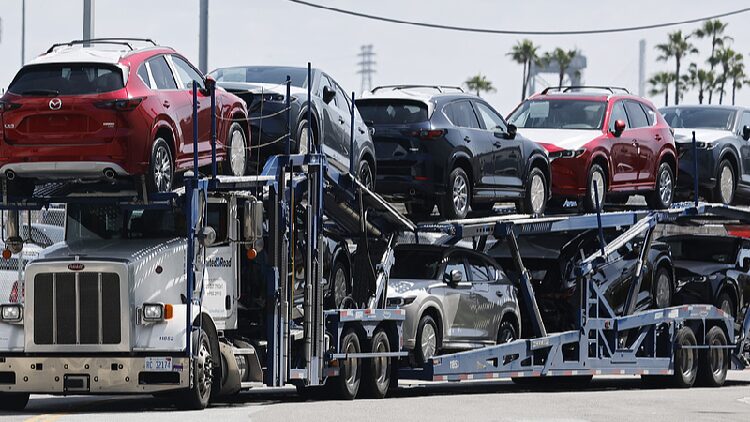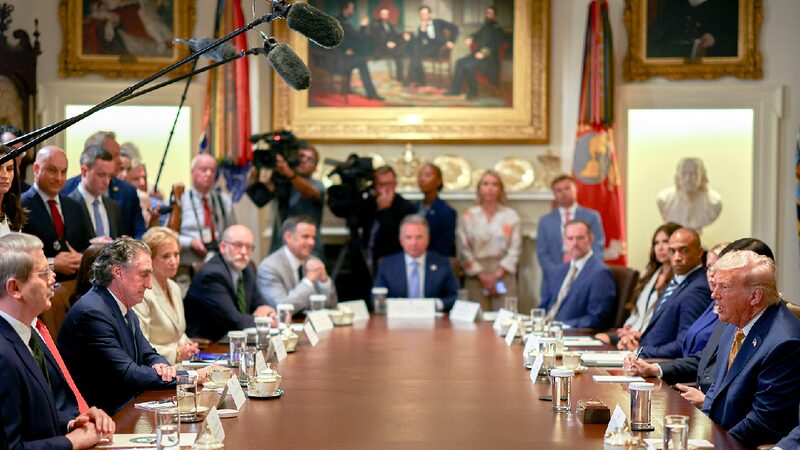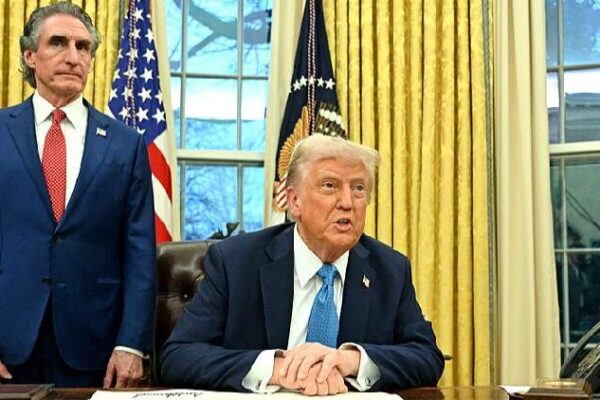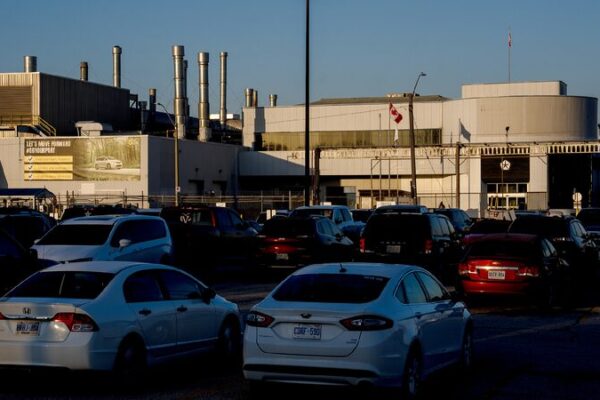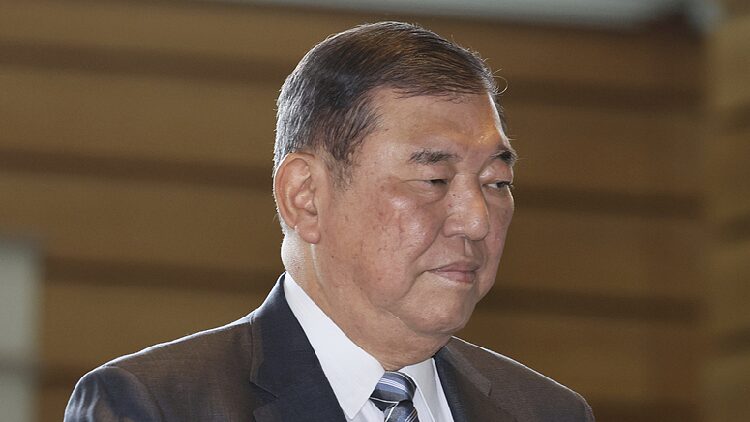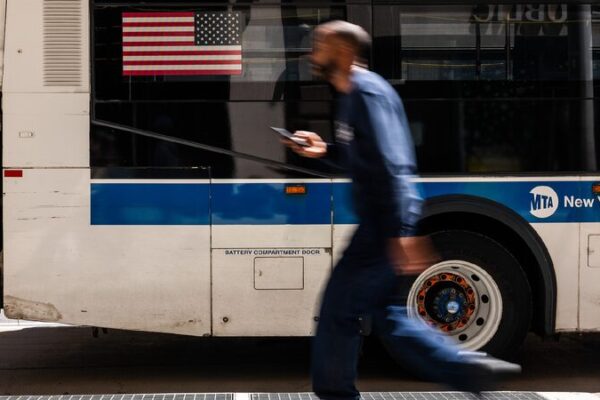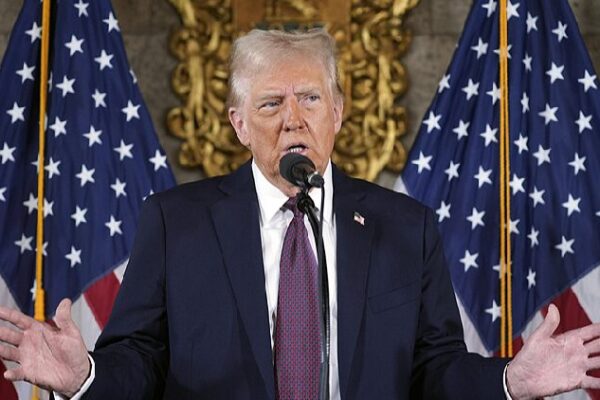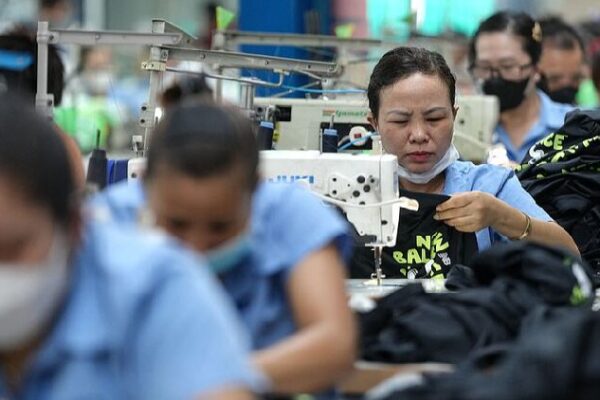Japanese Prime Minister Shinzo Abe plans to speak with U.S. President Donald Trump as early as next week to discuss the United States’ recent tariff hikes, following Japan’s unsuccessful bid for an exemption.
“I will logically explain how Japan’s economic relationship benefits the United States,” Abe said on a television program on Saturday, indicating that Japan may consider new investments in the U.S. to strengthen ties.
Abe also emphasized that Japan has no intention of imposing retaliatory tariffs against the U.S., stating, “We will not engage in a tit-for-tat trade war.”
Last week, President Trump announced new tariffs, imposing a 25 percent levy on steel imports and a 10 percent levy on aluminum imports from all trading partners. Despite lobbying efforts, Japan did not secure an exemption and is facing the full impact of these measures.
Abe intends to urge President Trump to reconsider the tariffs by highlighting Japan’s status as one of the largest investors in the United States. The Prime Minister described the situation as a “national crisis” and is seeking to mitigate potential economic fallout.
Japan’s Lobbying Efforts Fall Short
Despite weeks of diplomatic efforts, Japan was not exempted from the tariffs. Japanese officials have questioned the consistency of the tariffs with World Trade Organization agreements and have raised concerns about the accuracy of U.S. calculations regarding trade imbalances.
To cushion the blow to its economy, the Japanese government plans to make it easier for small businesses to access state-backed loans, Abe announced. Trade Minister Hiroshige Seko stated that his ministry has established a task force to analyze the tariffs’ impact.
U.S. tariffs on steel and aluminum are expected to affect Japanese industries significantly. The Daiwa Institute of Research estimated that the tariffs could reduce Japan’s real GDP by 0.6 percent in 2025.
Japanese Automakers Concerned Over Potential Auto Tariffs
Japanese automakers are particularly worried about potential U.S. tariffs on vehicle imports. The Trump administration has hinted at imposing a 25 percent tariff on auto imports, a move that could severely impact Japan’s automotive industry, which accounts for roughly 3 percent of the country’s GDP.
The International Trade Centre (ITC) stated that Japan could lose up to $17 billion in car export potential to the U.S. if auto tariffs are implemented. “Japan’s automotive sector comprises 20 percent of the country’s total exports, and the majority of exports are headed to the U.S. Now, the potential tariffs mean Japan could face significant losses,” said Julia Spies, ITC’s chief of trade and market intelligence.
To address these challenges, Japan may seek to diversify its export markets. “Markets such as China, Germany, the Philippines, and Thailand hold unrealized export potential for Japanese vehicles that could offset losses in the U.S. market,” Spies added.
Dispute Over Agricultural Tariffs
President Trump has criticized Japan’s agricultural tariffs, singling out the rice market and alleging excessive tariffs. Japanese Agriculture Minister Ken Saito called these claims “illogical,” explaining that under the WTO’s minimum access framework, Japan has a tariff-free rice import quota and applies tariffs only on amounts exceeding that quota.
Looking Ahead
As trade tensions escalate, Japan is striving to maintain strong economic ties with the United States while protecting its domestic industries. Prime Minister Abe’s upcoming conversation with President Trump is seen as a critical opportunity to address these challenges and seek a mutually beneficial resolution.
Reference(s):
Japan's PM to discuss tariffs with Trump after failed exemption lobby
cgtn.com
